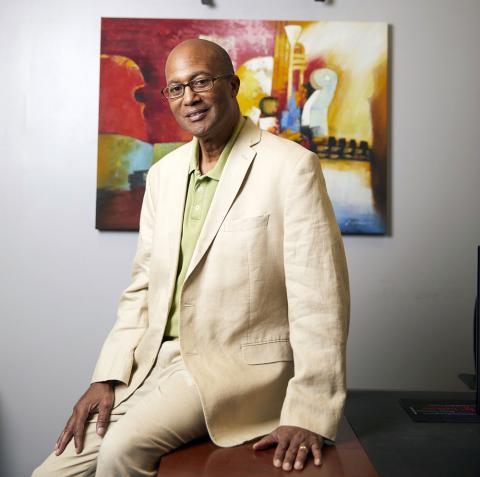Two Berklee Titans Retire

J. Curtis Warner ’76

Kari Juusela ’86
Warner has a long history of building bridges among constituents with different aims. And Berklee benefitted from his experience and service ethic for a quarter-century.
He began his education career at South Boston High School during the height of Boston’s desegregation busing crisis in the 1970s. Prior to his arrival, students rioted and threw a piano down the stairs, resulting in the removal of the instrument. Warner convinced administrators that he would keep the piano safe and worked with the school’s theater teachers to produce a musical as a way to re-introduce performances to a school riddled with racial tension.
“Music became the unifier,” he recalled. “You had white and black kids who couldn’t walk down the hall together, but they could play together in music class.”
Such experiences shaped Warner’s understanding of the value of music education and cultivated his aptitude for diplomacy during his 17 years with the Boston Public Schools. It was a prelude to his work as the architect of the City Music Program and his cultivation of strong relationships between Berklee and its neighbors.
A 1976 graduate of Berklee, Warner returned in 1993 to manage the Berklee International Network (now Berklee Global Partners) as well as to run a scholarship initiative for Boston high school students to attend Berklee’s Five-Week Summer Performance Program. He later built a year-round program, Berklee City Music, to mentor students in schools with no music programs. As well, his work with the international network served as the inspiration and model for the City Music Network, now a consortium of more than 40 community organizations.
In 2015 Warner became associate vice president for education outreach and executive director of City Music, and then Berklee’s associate vice president for community and government relations.
In retirement, Warner plans to play drums again (he’s already done two gigs). Of Warner’s legacy with City Music, Krystal Banfield, associate vice president, education outreach and social entrepreneurship says, “There are few people I know who have an unconditional compassion for people, particularly young people, and help those who need a leg up to have an opportunity and have a voice.”
Kari Juusela retired from his position as a division dean at Berklee in August after 14 years of service. He will, however, continue to teach for Berklee online. A Berklee graduate, Juusela earned a diploma and a bachelor of music degree in performance in 1977 and 1986 respectively. He also later earned a master of music degree in composition from Georgia State University in 1988, and a doctor of music degree in composition from the University of Maryland in 1992.
In 2004, Juusela left his position as the associate dean at Stetson University School of Music in Deland, Florida to return to Berklee as the dean of the Professional Writing Division. When the professional writing and music technology divisions merged around 2014, Juusela oversaw the new combined division.
When asked about accomplishments during his tenure at Berklee, Juusela states that he is pleased that the electronic digital instrument will be a principal instrument next year. “Stephen Croes [former dean of the Music Technology Division] and I talked about this a lot and it took years of collaboration with Michael Bierylo, Ron Savage, and others to come to fruition,” he says. “I think that will be big because it’s the direction in which music is going.”
He also cites his collaborative work leading to the development of programs and hiring faculty members and chairs for video game scoring, contemporary conducting, composition, film scoring, songwriting, music theater, production, and more. “My role was to throw in a few ingredients, stir the pot, and then try to stay out of the way,” Juusela says. “I loved working at Berklee because people were willing to take a risk on things that other schools would not risk.”
Juusela has a deep catalog of orchestral and chamber ensemble and works for solo instruments and his music has appeared on seven albums. His future plans include more composing as well as performing on acoustic and electric cello. He plans to continue writing electronic music to perform with professors Richard Boulanger and Michael Bierylo. The trio has previously performed internationally in Krakow, Poland, Shanghai, China, St. Petersburg, Russia, and in America.
Juusela also plans to increase the number of classes he has been teaching for Berklee Online. “I am really excited to be teaching again—especially online,” he says. “It’s amazing to have students from Iran, Egypt, and Singapore. I am stunned by the talent out there.”




